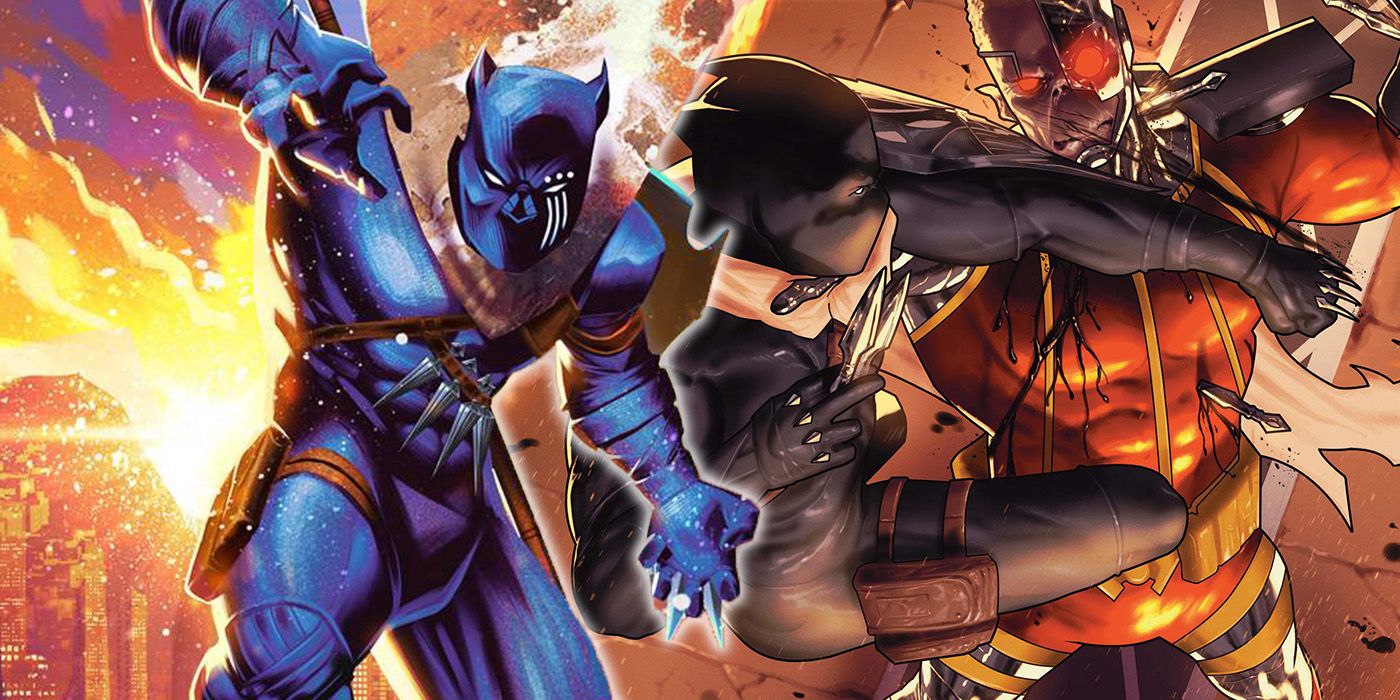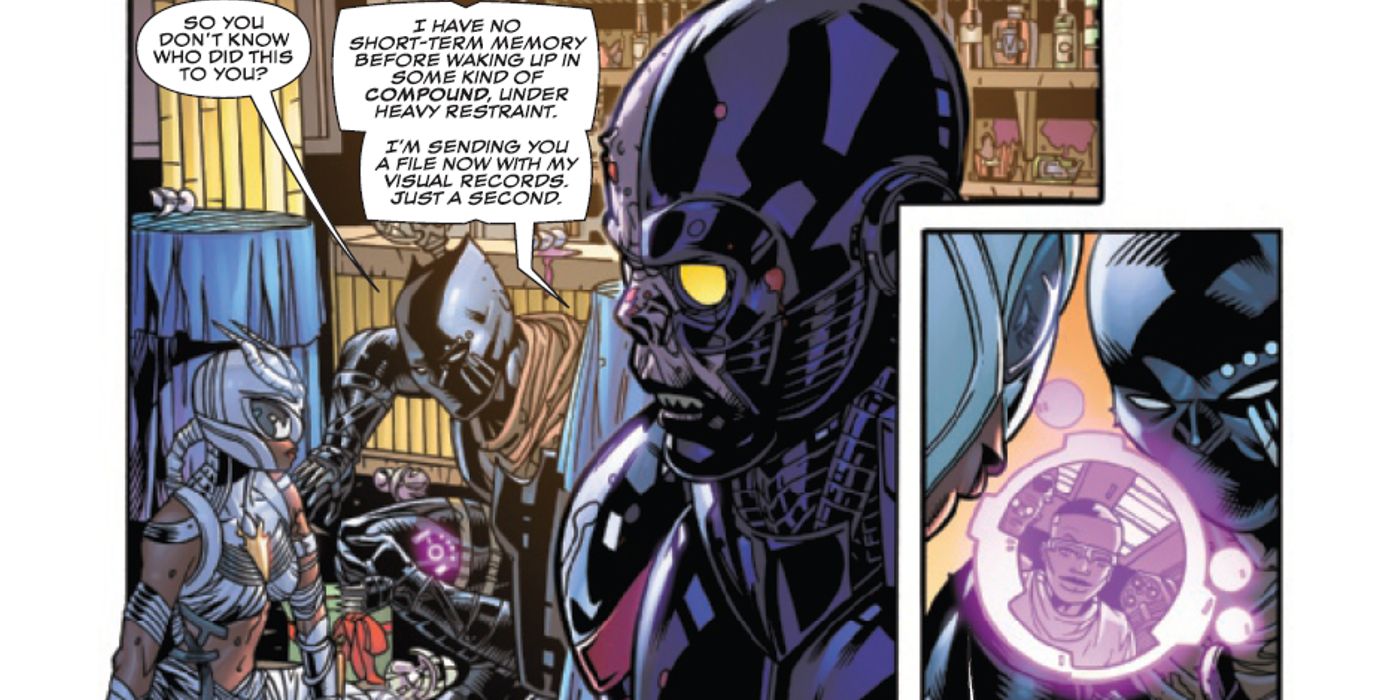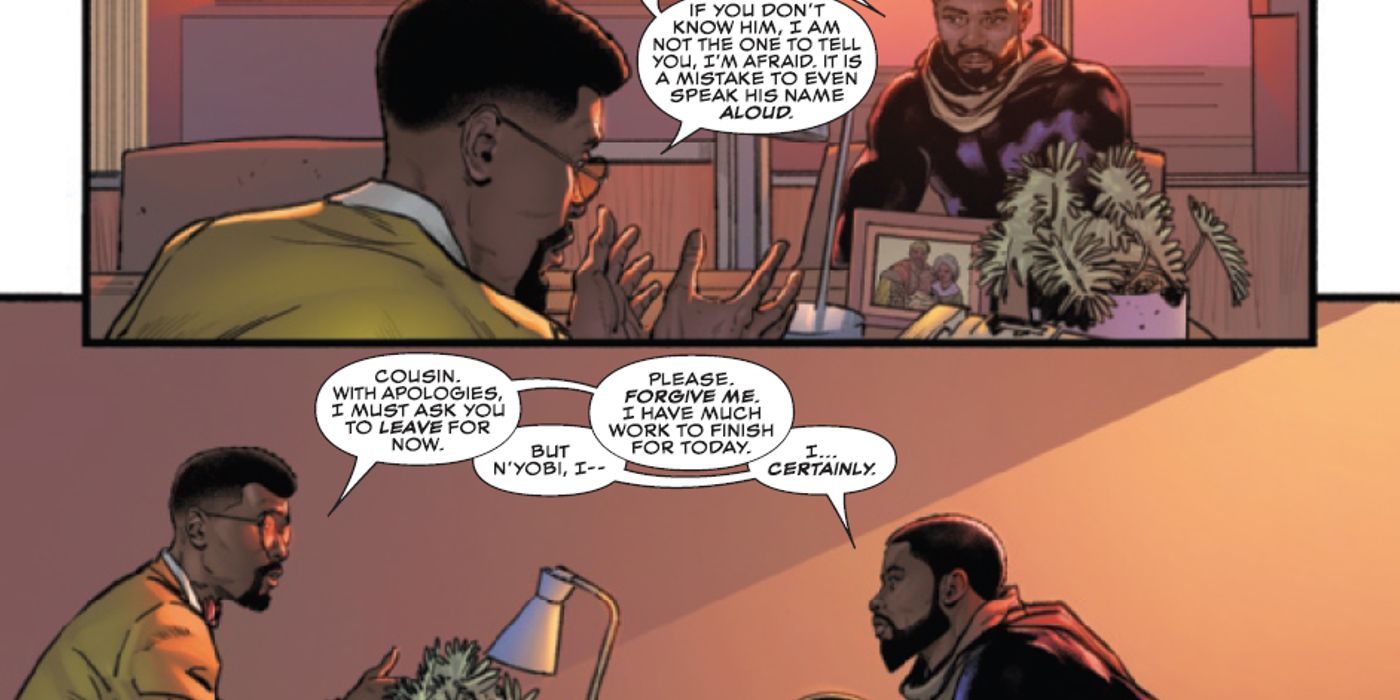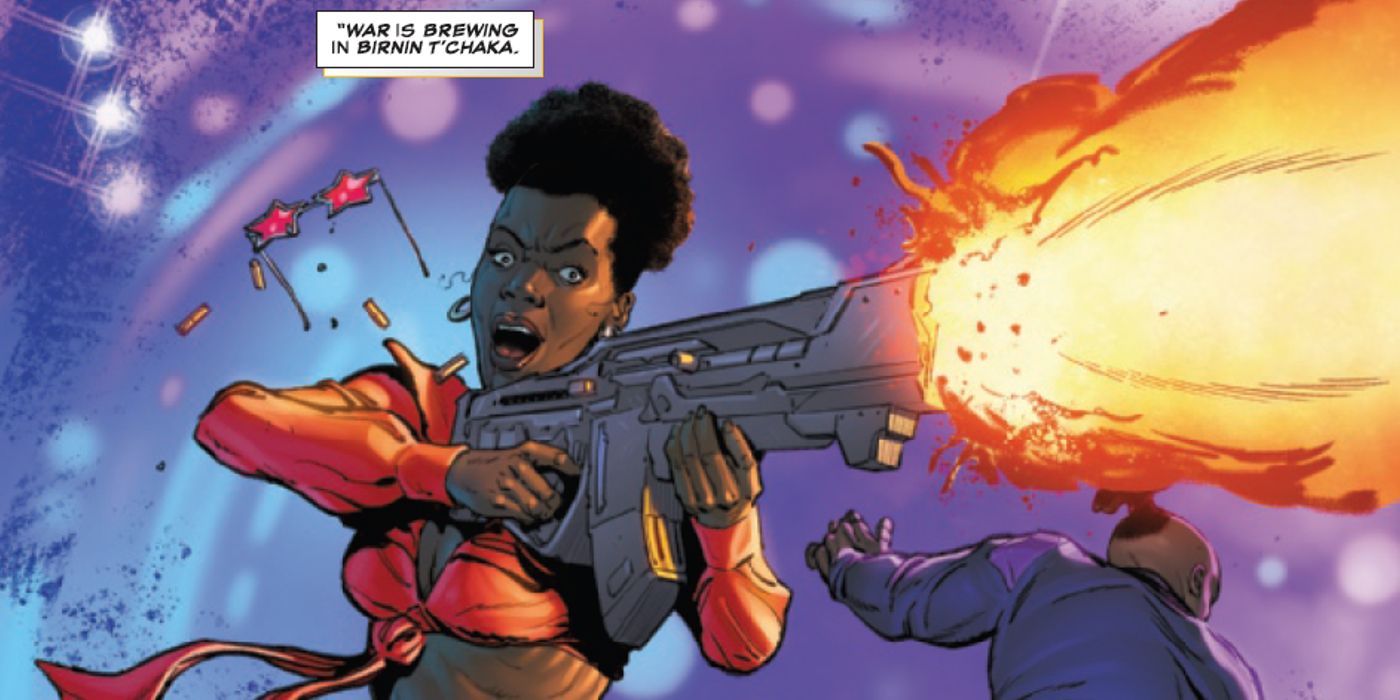Summary
- Wakanda is once again on the brink of war, and even the Black Panther can’t stop it.
- Wakanda has faced increasing internal conflicts in recent years, from coup attempts to superpowered battles, eroding trust in T’Challa’s leadership.
- Innocent civilians are more likely to be casualties in Wakanda’s current gang war, and ending the violence will be a challenge for the Black Panther.
The following article contains major spoilers for Black Panther #4, on sale now from Marvel Comics.
Despite being hidden away from the rest of the world for so long, Wakanda as a nation is no stranger to conflict. Over the past few years, its delicate political state and numerous internal forces have pushed Wakanda to the brink of such turmoil, though those problems were made out to seem like a thing of the past not all that long ago. This makes it that much more disturbing that now, Wakanda is yet again being pushed toward war, and this time not even the Black Panther can stop it.
Black Panther #4 (by Eve L. Ewing, Chris Allen, Mack Chater, Craig Yeung, Jesus Aburtov, and VC’s Joe Sabino) opens to its titular hero caught in the midst of a deadly battle with a murderous Deathlok, sent to assassinate the head of one of Wakanda’s most prominent crime family’s at what should have been an ornate wedding. While T’Challa and Wakanda’s newest hero Beisa free Deathlok from his malevolent programming and confirm his mission, they also uncover who sent him. As it turns out, the Deathlok was reprogrammed by a member of the Ilonga crime family, rivals to the Nkisu’s, who had hoped to take out their primary competition during an otherwise celebratory occasion. Instead, they have ignited what will quickly become all-out war in the streets of Birnin T’Chaka.
How Wakanda Ended Up on the Verge of War – Again
Wakanda has rarely faced any major internal conflicts throughout history, yet those events have become increasingly frequent in the past few years. Between various coup attempts and superpowered conflicts, Wakanda went from being a veritable utopia to one that was constantly on the verge of falling apart. Once the war between the Avengers and X-Men reached Wakanda’s borders, it did precisely that thanks to a massive tsunami sent down upon the nation by a Phoenix Force possessed Namor. Fortunately, the country was able to rebuild from the devastation unleashed upon it, though its people were not able to rebuild their trust in their leader all the same.
In the wake of Namor’s attack and further tragedies at the hands of villains such as Thanos and the Cabal, Wakanda’s government was reformed from an outright monarchy under T’Challa’s rule to that of a democratic parliamentary system. Although T’Challa remained on the throne as something of a figurehead, he was stripped of the vast majority of his previous political powers. That is, up until the truth of T’Challa’s secret sleeper agent program spurned even more coup attempts, all of which amounted to a Wakanda so rife with infighting that it could simply no longer afford such a king on its throne. In turn, T’Challa was forced to give up his throne and citizenship, becoming an exile of a nation that has proven itself to be better off without him, even if it means existing in such a delicate political state.
Why Wakanda’s Latest War is More Dangerous Than Any Other
While previous internal conflicts have taken place within or around Wakanda’s political stage, the gang war brewing between the Ilongas and Nkisus is unlike the problems it has faced in a myriad of ways that no one in its borders is prepared to face. For all that Wakanda has to offer in terms of personal defense against the rest of the world, its generally peaceful existence as a country has left it largely devoid of any internal defense structures. There may have been the likes of the Hatut Zeraze, but their time has long since come and gone, meaning there is no one to look toward for help when it comes to war in the streets of a city such as Birnin T’Chaka.
Making matters worse, the Ilongas and Nkisus each have prominent strangleholds over their respective territories and regimes. As such, there is no shortage of soldiers, mercenaries, and assassins willing to give their lives to the cause of either side in this conflict. Without any battlefields like those that the Black Panther has grown accustomed to, the casualties of the war between the Ilongas and Nkisus are that much more likely to be entirely innocent. And, with each side in the conflict being so deeply imbedded within Wakanda’s underworld, putting a stop to the violence is going to be a lot harder for the Black Panther than merely beating some superpowered villain into submission.
Why Black Panther is Out of His Element in Wakanda’s Latest War
The conflict in Birnin T’Chaka is very clearly one that the Black Panther is in no way ready to leap into. In spite of all T’Challa’s experience, the situation at hand just isn’t one that he has any relevant history in dealing with. Global threats, superpowered armies, and treacherous political stages may all be in T’Challa’s wheelhouse, yet none of those have given him any genuine insight into how otherwise ordinary villains operate, even if their latest rise was made possible by the Black Panthers past failures.
This conflict might not be a direct result of the previous turmoil Wakanda has faced, but so much effort being spent holding the country together on a political level certainly didn’t help to curb organized crime, nor the tragically lethal results of it. If anything, the power vacuum, with the Ilongas and Nkisus fighting, was a byproduct of Wakanda’s political tensions and the amount of time and resources required. At that rate, the Black Panther may soon enough find that the very same government who ousted him have stepped into this particular arena for themselves, and as much as that could bring an end to Wakanda’s latest gang war, it would also give T’Challa one more opposing force to fight along the way.




